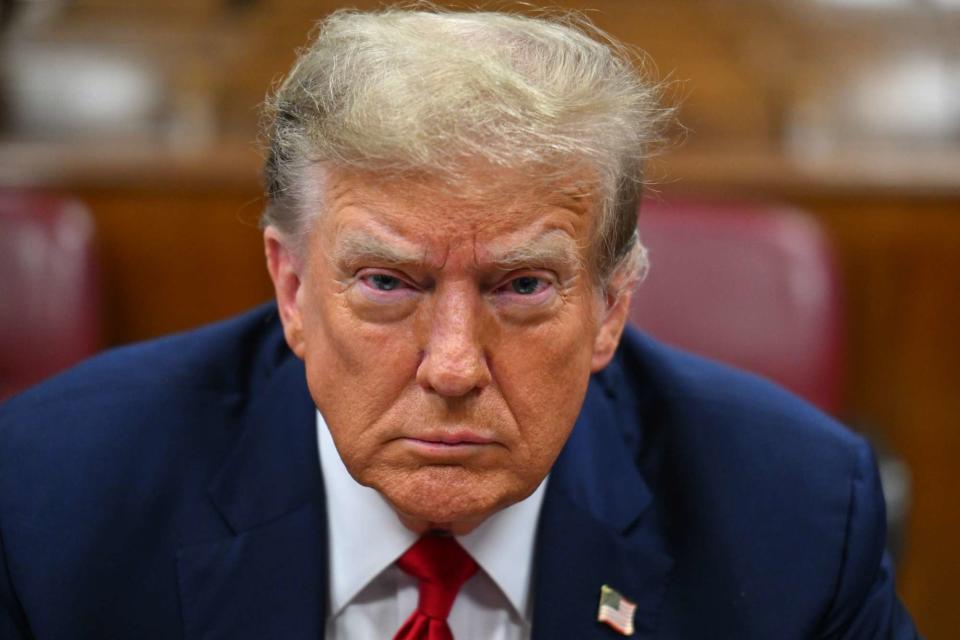On July 1, the Supreme Court ruled that Trump cannot be prosecuted over his “official” presidential acts, but the New York case largely centered around his unofficial conduct as a presidential candidate

Angela Weiss – Pool/Getty
Donald Trump attends the first day of his Manhattan criminal trial on April 15, 2024
Former President Donald Trump is challenging the guilty verdict in his New York criminal trial after the Supreme Court ruled that he is partially immune from prosecution, according to news sources.
Trump’s lawyers sent a letter to Judge Juan Merchan which challenged the verdict based on the Supreme Court’s recent ruling, and asked the judge to delay Trump’s sentencing on July 11 while he considers their request, according to the Associated Press, CNN and WABC-TV.
In the letter, his lawyers argued that there was evidence provided by prosecutors in the trial that involved Trump’s official presidential acts and should not have been used to make the case, per the outlets.
Trump’s lawyers and representatives did not immediately respond to PEOPLE’s request for comment.
Related: Sonia Sotomayor Pens Fearful Dissent in Trump Immunity Case, Saying Decision Makes Him ‘King Above the Law’
This comes after the Supreme Court ruled 6-3 that Trump is immune from being charged for “official” presidential acts, though he is not immune from prosecution for “unofficial” actions he took, or anything he did before and after his presidential term.
“The President enjoys no immunity for his unofficial acts, and not everything the President does is official,” the court’s syllabus reads. “But under our system of separated powers, the President may not be prosecuted for exercising his core constitutional powers, and he is entitled to at least presumptive immunity from prosecution for his official acts.”
This means that some of Trump’s federal Jan. 6 charges, which centered around actions he took in his official capacity as president, may need to be dropped or reworked, according to the Supreme Court.
Related: Supreme Court Says Donald Trump Is Partially Immune from Prosecution: What That Means for His Jan. 6 Charges
Mark Peterson / POOL / AFP/ Getty
Donald Trump leaves the Manhattan courthouse after he was found guilty of falsifying records to conceal a conspiracy to interfere with the 2016 election
The Supreme Court’s ruling does not seem to apply to Trump’s New York case on the whole, which focused on Trump’s actions as a presidential candidate and his personal finances during his first year in office.
He was convicted of 34 felony counts in May, when a Manhattan jury sided with prosecutors in determining that Trump falsified business records to conceal a scheme to corrupt the 2016 presidential election.
Related: Every Crime Donald Trump Has Been Charged With, Explained
The former president has been indicted in three other criminal cases, which deal with his alleged election subversion attempts after he lost to Joe Biden in 2020, and his handling of classified documents after leaving the White House.
Those cases are unlikely to go to trial before the November election following a series of delays prompted by Trump’s legal team.
Never miss a story — sign up for PEOPLE’s free daily newsletter to stay up-to-date on the best of what PEOPLE has to offer, from juicy celebrity news to compelling human interest stories.
For more People news, make sure to sign up for our newsletter!
Read the original article on People.


